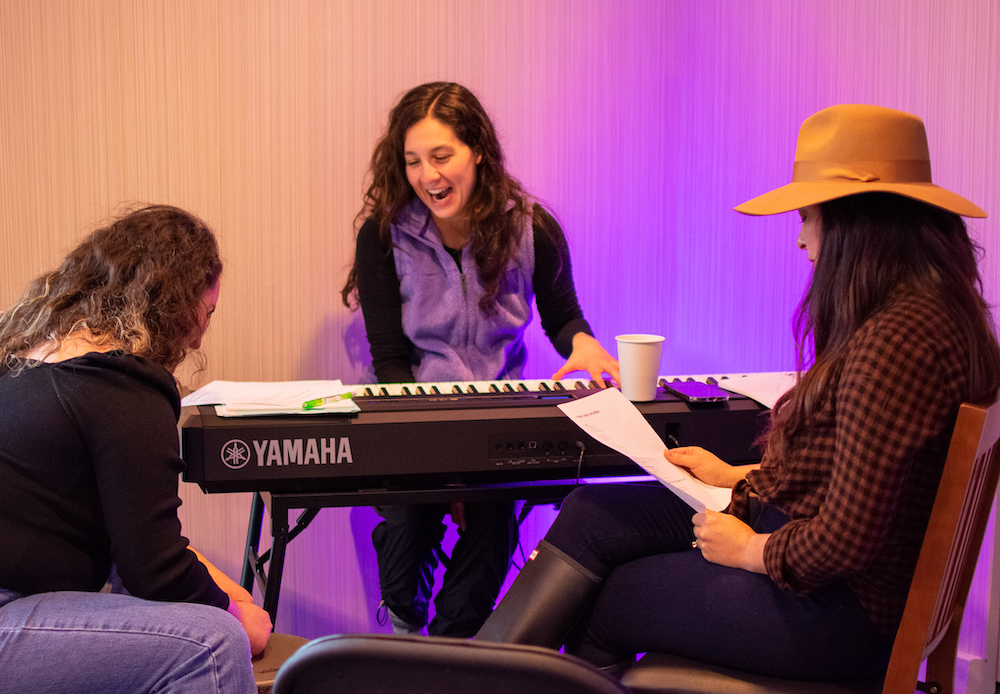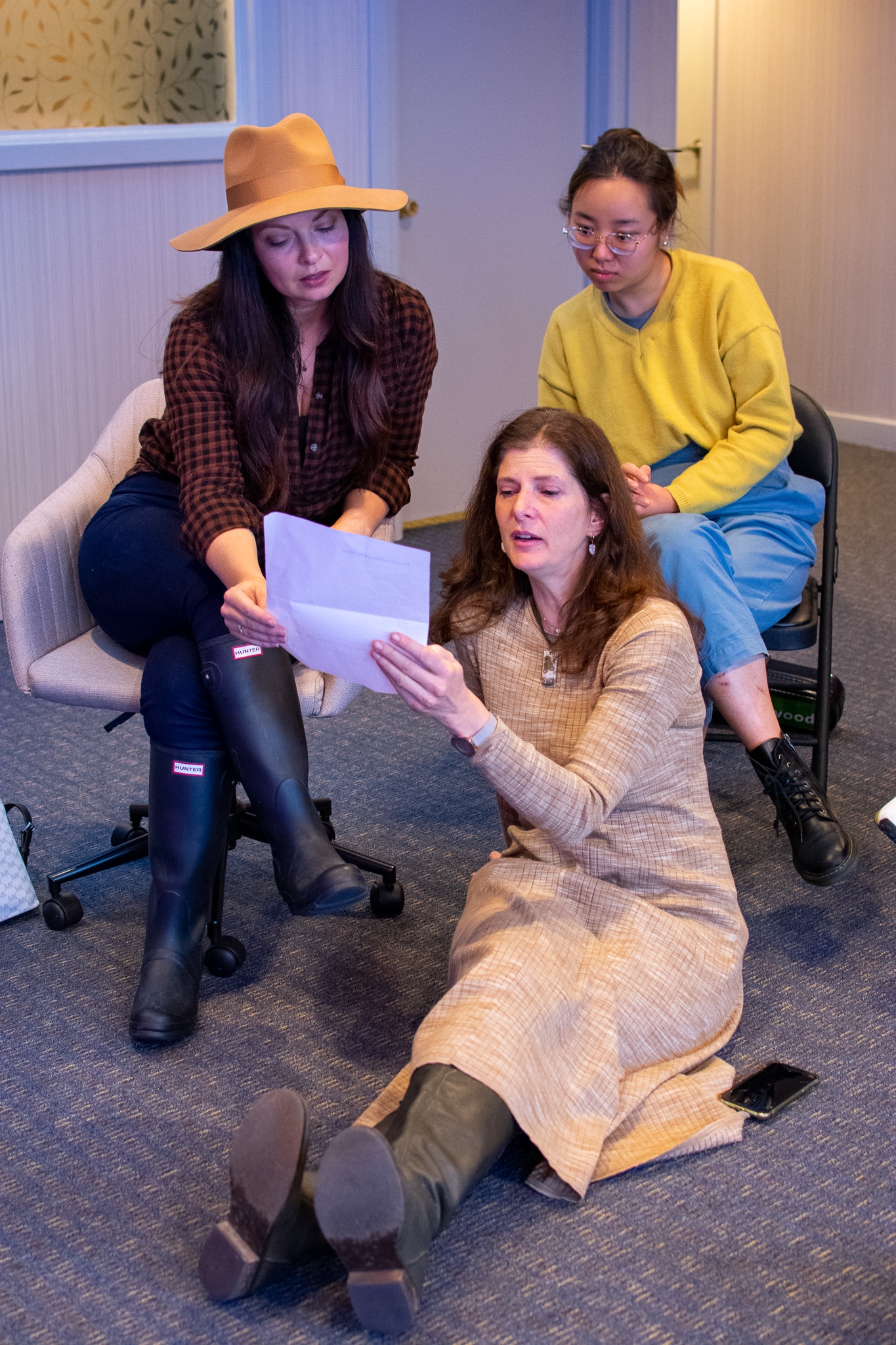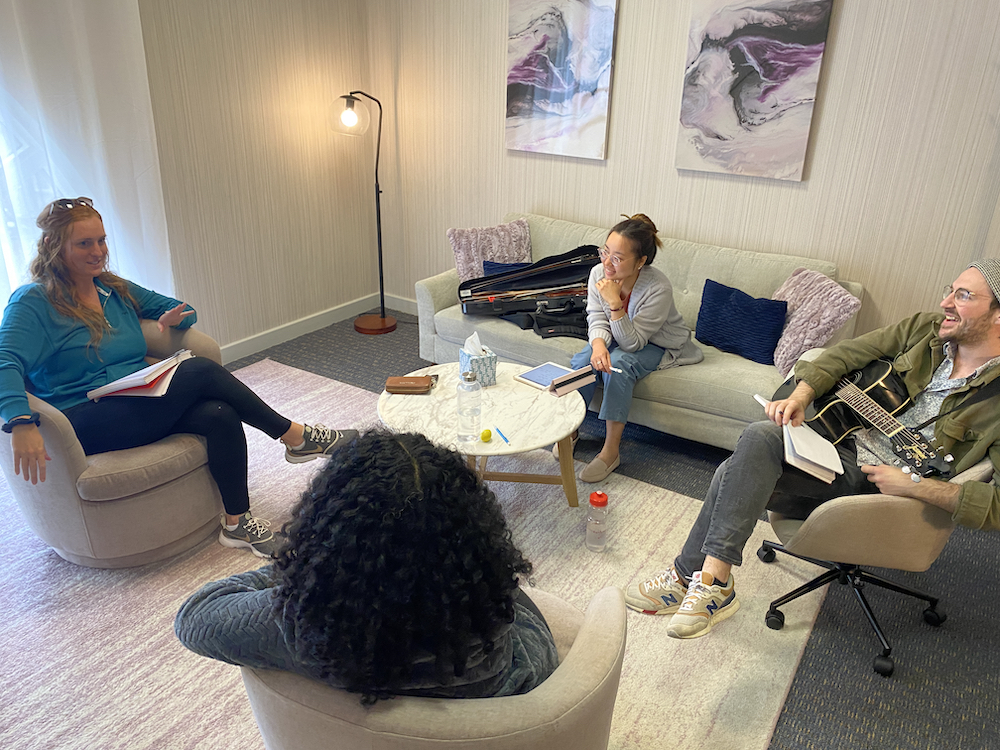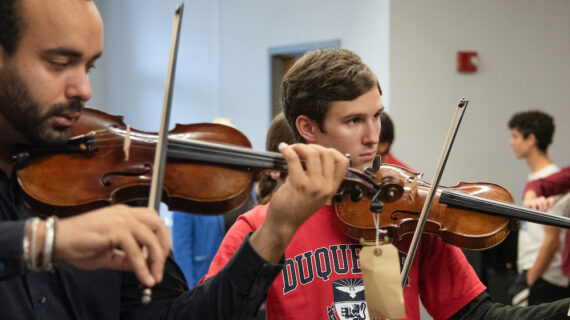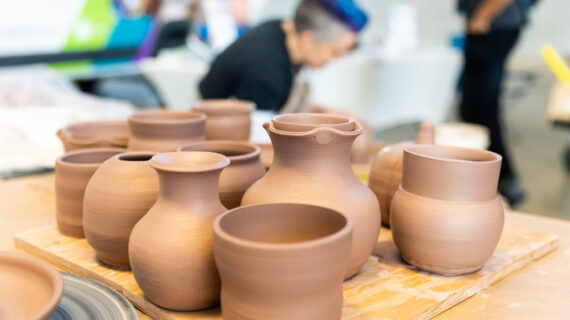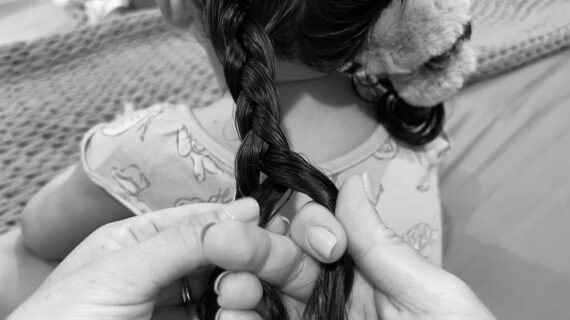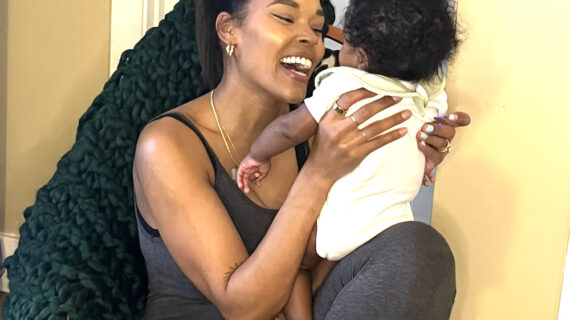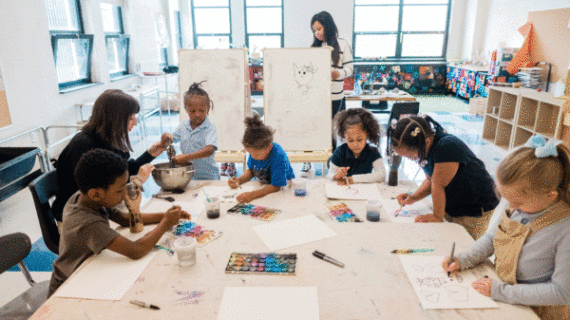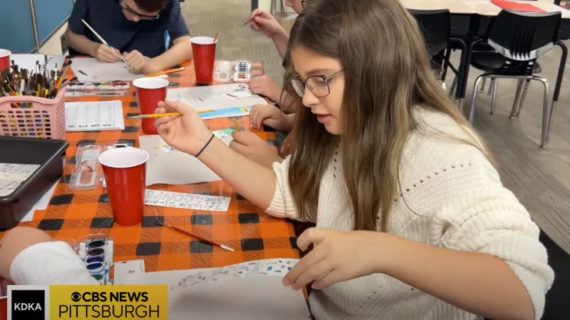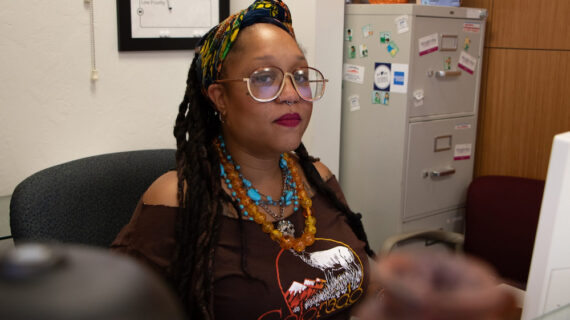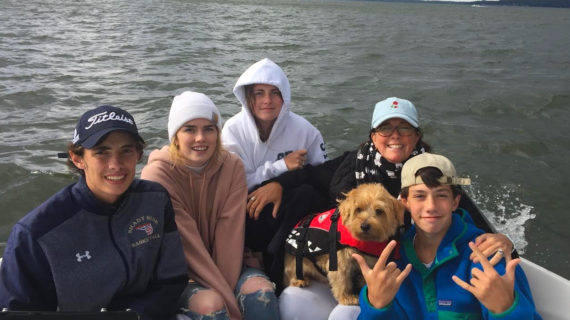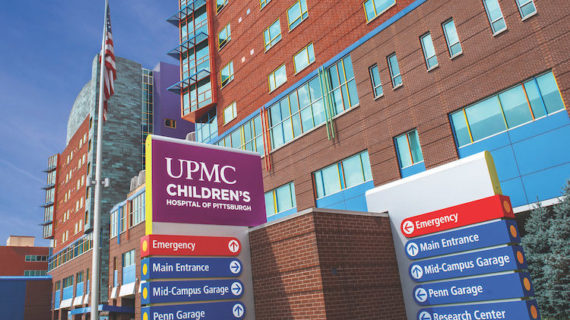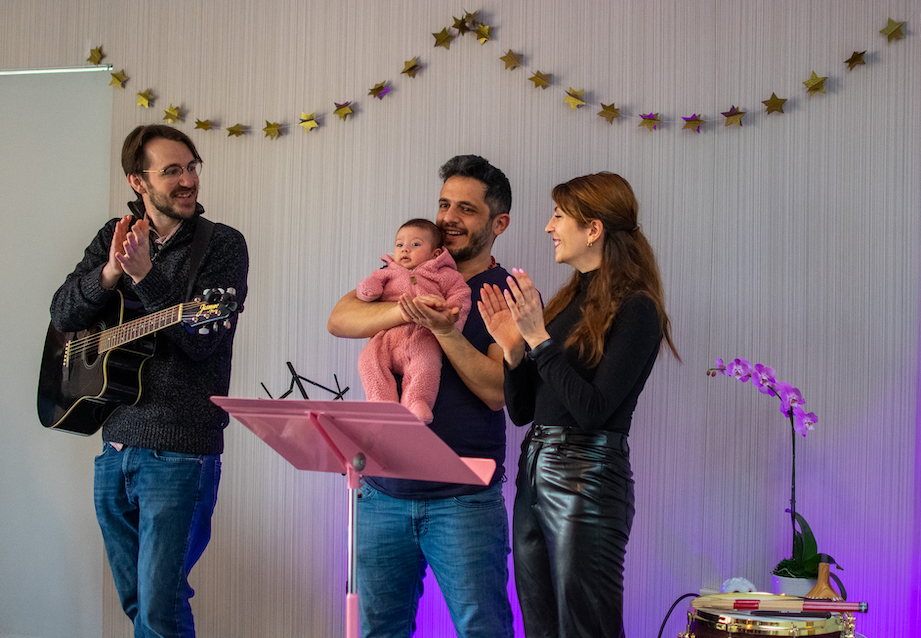
The Lullaby Project Pittsburgh is creating original music to help new parents cope with trauma
At 29 weeks pregnant, Kellee Meder went into labor while vacationing with her husband and mother in the Bahamas last August.
As she lay hooked to a monitor in the local hospital, COVID restrictions kept her alone in her un-air-conditioned room. Once born, her healthy, 3-pound, 1-ounce daughter was taken to a neighboring hospital’s neonatal intensive care unit (NICU) where Meder could visit her for just 15 minutes daily.
She and her husband needed to secure the necessary $54,000 to fly home with a medical team in a private jet.
“The whole experience was traumatic,” says Meder, a kindergarten teacher from Cranberry.
Once the family returned home and her baby was in Allegheny Health Network (AHN) West Penn’s NICU, Meder spoke openly about her birth experience to Dr. Tracey Vogel, director of West Penn’s Perinatal Trauma-informed Care Clinic.
“There is a lot of research into the use of music in decreasing anxiety in the peri-operative space,” Vogel says.
So Vogel recommended that Meder participate in the Lullaby Project Pittsburgh, a then-new initiative that partners the West Penn clinic with Carnegie Mellon University’s School of Music in the College of Fine Arts.
The Lullaby Project helps expectant AHN patients and new parents overcome emotional birth challenges by composing a customized lullaby.
“It’s an opportunity for parents to reflect on the process that they’ve been through and dream about the future for their children,” says Claire Gunsbury, founder of the Lullaby Project Pittsburgh and a performer who received her Master of Music in flute performance from CMU this spring.
Next month marks the Lullaby Project Pittsburgh’s first-year milestone. Thanks to generous funding, the program is free to families who participate.
 Customized creative care
Customized creative care
The student musicians encouraged Kellee Meder to express her emotions through a series of letters that eventually became lyrics for the upbeat Caribbean-infused “The Bahama Mama Song.”
“The musicians were phenomenal,” Meder says. “It made me dig deeper into what I was feeling.”
Each family’s lullaby is as varied as the challenges surrounding the birth of their child, Vogel says.
“There is no one set pathway for these individuals,” she says. “They are all hurting, and to know that we’ve been able to create something that’s different – it’s magical to watch what happens for them.”
One Lebanese family, unable to take their newborn home, composed an adventure song about returning to their homeland. Another couple created a tune that expresses how their baby bonds their newly blended family.
For Amy Walsh, a therapist and life coach from Kennedy Township, the program helped her during her second pregnancy – when fear of repeating the stress of her first in 2020 caught her off guard.
“I was pushed, because of my age, to have a forced induction with Pitocin for five days which didn’t work and then ended up with a very traumatic C-section,” Walsh says.
In addition to the Lullaby Project’s group music and sound therapy sessions, Walsh appreciated the supportive community environment. With prompts from the musicians, she formed the lyrics of her lullaby for her 1- and 3-year-old sons by writing a poem.
“It’s honestly the only song that I sing for them at night-time,” she says.
Entrepreneurial empathy
Originating at New York City’s Carnegie Hall, the project locally has helped 15 families with three 2 ½-hour weekend group and individual sessions with CMU student musicians. The students are introduced to the project in a music entrepreneurship course that focuses on social justice, trauma, empathy and human connection.
“I never imagined how profoundly students would be impacted by their involvement,” says Monique Mead, director of music entrepreneurship at CMU who serves as an advisor for the project.
For Sean Andres, operations director of the Lullaby Project Pittsburgh, student participation was part of his Advanced Music Studies Certificate in Music Entrepreneurship program.
“It was so rewarding to work with a team of people with very different skill sets, coming together to help facilitate one of the most innocent of human connections,” he says.
The program expands next month when the student musicians – and recent graduates still involved with the project – will train to help families who are part of AHN’s Olivia’s Angels program for perinatal palliative care and bereavement.
“We would like to offer Lullaby sessions to those individuals and families who have experienced loss,” Vogel says. “This training will be invaluable to the musicians in working with these people.”
Feedback from participating families has been “very positive,” Gunsbury says. One reason is because they’ve been able to take a personal experience and create something enjoyable.
Gunsbury says that exploring the playfulness of music “and the creativity and the improvisation and the power that a simple melody can have – it’s helped me remember why we do music in the first place.”
